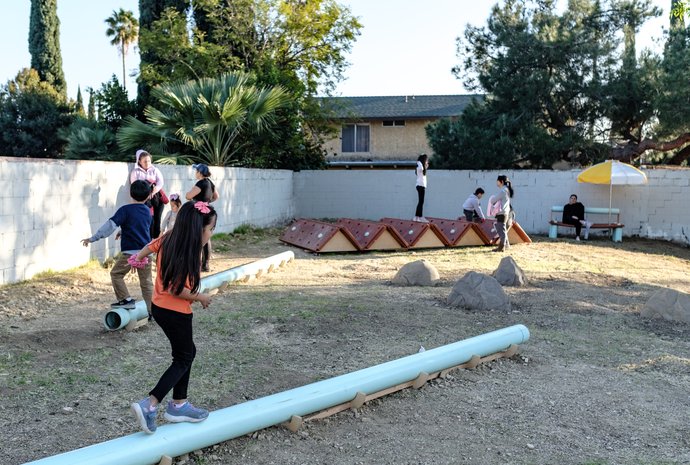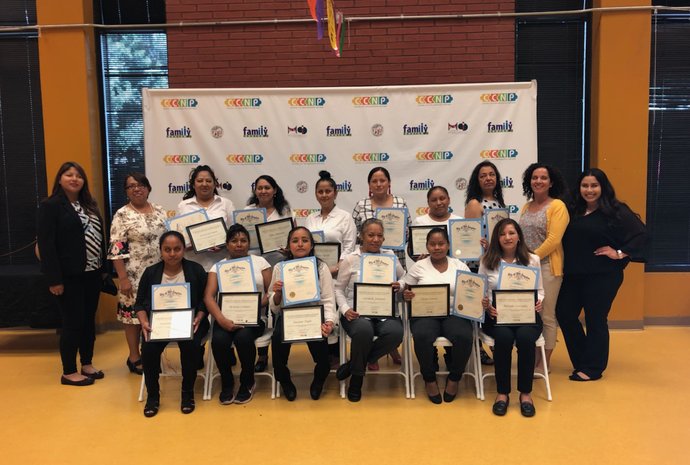Resetting Expectations: Community Building and Policing
In recent weeks, the streets of L.A. have been filled with Angelenos in an outpouring of sympathy for George Floyd, an unarmed, handcuffed black man who died at the hands of Minneapolis police, and anger over a long history of oppression in this country. In reality, the two have deep ties as the origins of policing in the United States harken back to the pre-emancipation days of slave patrols. Police today are called upon to keep our city safe but for many communities of color, they are associated with continuing pain, harm and trauma. Desperately in need of groundbreaking change, all eyes are on Los Angeles City leaders and the LAPD for what they will do to create lasting change. And most importantly to end once and for all the senseless killing of black Americans and to rebuild our communities as part of a long-overdue process of reconciliation and healing.
LISC LA works predominantly with the underserved communities that are most at risk of police violence, and we feel deeply for our partners, clients, and Angeleno community that have been hurt by recent events and ongoing injustices. That is why we do the work we do, to unravel and work to cure the systemic injustices that have been perpetuated over hundreds of years. We believe it is important to call attention to the fact that while we are grateful for the police who serve our city, crime is seldom causeless, it is a byproduct of systematic disenfranchisement, neglect, and lack of resources. As we face difficult times, it should serve to remind us that our focus should be on building up our communities rather than criminalizing them.
Every year, over half ($1.9 Billion in 2020) of our city’s budget goes to the police department, and while many police serve our communities exceptionally, our city over-relies on law enforcement for solving social ills that could be better gained from investing in our communities. Here at LISC we invest in healthy communities through partners like Kare Youth League and Kounkuey Design Initiative to eliminate the school-to-prison pipeline. We get capital to POC-owned small businesses such as through our LISC Small Business Relief Grants to challenge trends in decreasing wealth for communities of color. We fund affordable housing development to house and keep healthy those Angelenos that are most at-risk of homelessness who are predominantly POC. LISC LA believes that these services and interventions are essential to an equitable Los Angeles, combating systemic injustices, and uplifting historically underserved communities. We also believe that for these efforts to be successful, they need to be prioritized by our city budget with investments in education, safe recreational spaces, health, business, transportation, and other essential needs.
However, not only do we need to focus on uplifting and not criminalizing Angelenos of color, we need to reform how law enforcement interacts with communities within the City. Since the LAPD is one of the largest police forces in the nation, and in fact, the world, they too set a precedent for global policing, and it is our duty to be at the forefront of the changes to come. In the past, Los Angeles has made reforms like the 2017 use-of-force policy, but these fixes have not proven to be enough and we must rethink how we structure policing in our cities. Community policing efforts have proven to be successful and a step in the right direction towards not only decreasing crime but responding to community needs and building trust.
Trust, transparency, and reconciliation are at the core of recent outrage at incidents involving the police within Los Angeles and other American cities. And if we are to respond to the current situation, these must be our priorities. In order to fundamentally change how law enforcement and Angelenos interact, steps must be taken to integrate police with the communities they serve to build a common understanding of their needs and to welcome Angelenos as equal partners in identifying priorities and developing solutions. Protecting and building up our communities is not possible unless the institutions that serve them are in touch with the communities themselves, and this has recently been made possible by ventures into community policing programs that build ties with community members and lead to a quantifiable decrease in crime.
Our LISC Safety and Justice team supports these types of collaborative efforts working with residents, community-based agencies, businesses and police to understand the root causes of crime and the intersections of place and crime. We offer trainings such as Crime Prevention Through Environmental Design (CPTED) that supports a community driven process where residents and key community stakeholders work together to identify specific places within the neighborhoods where residents do not feel safe. Participants then collectively develop strategies to reclaim that space through improved lighting, blight remediation, reducing access points to public and private spaces and redeveloping parks, lots and business districts. These changes create spaces that are no longer perceived as dangerous and can now attract, rather than deter additional investments.
Through such efforts, LISC continues to grow ties with communities and work to understand and meet their needs. We see a change in the narrative that focuses on putting community needs first, decreasing a reliance on policing to societal ills and emphasis on resetting expectations on the public safety agenda that should be pursued. In fact, many of our partners are working to provide solutions to the social ills that currently involve police interaction. And many would argue that this is “unnecessary policy interaction”. It is time we consider a stronger bond between law enforcement and community organizations that can work hand in hand to serve community needs and safety.
We hope to see a future Los Angeles where communities are uplifted instead of denigrated, and where policing involves community members and serves their needs. It is time to consider directing resources towards building stronger communities, and a future where the deep wounds in our country can heal.


